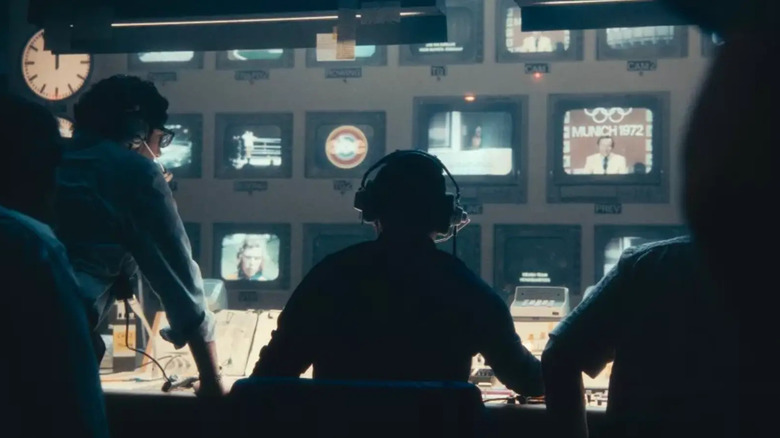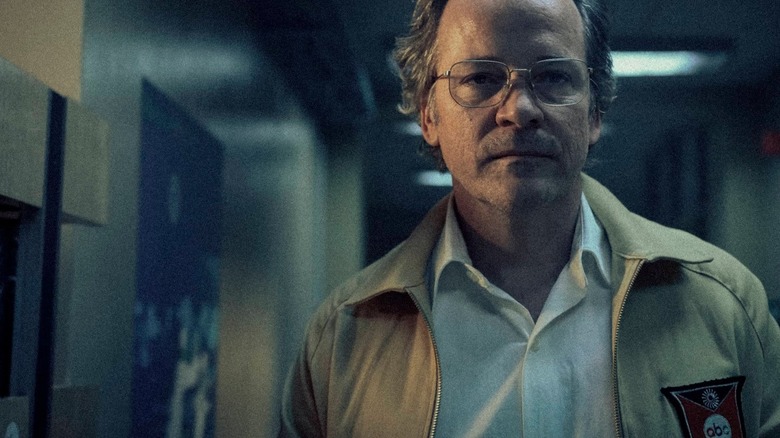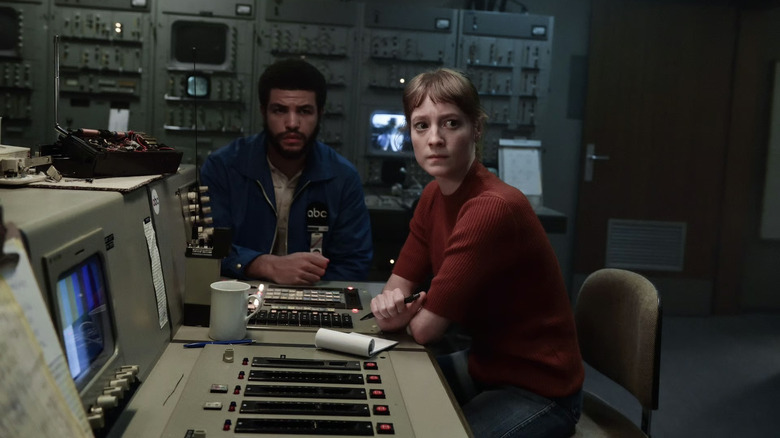This Acclaimed 2024 Movie Is The Perfect Companion To Steven Spielberg's Munich
Steven Spielberg's 2005 film "Munich" might be considered the first of a thematic trilogy — call it the Current Events Trilogy — wherein the famed filmmaker examined crucial events of the past to make direct comments on the present. "Munich" was the first part of the trilogy, and it used the bombing — and subsequent military revenge campaign — of the 1972 Olympics as a way to comment on the revenge tactics committed by the United States following the events of 9/11. The second part of the trilogy was 2012's "Lincoln," a film that flashes back to 1865, and that used the ratification of the Thirteenth Amendment to distantly comment on same-sex marriage rights in the present. The third part of the trilogy was 2017's "The Post," a film that used the Washington Post's coverage of the Watergate scandal in 1971 as a means to comment on the relationship of the news media to then-president Trump.
But to "Munich." Spielberg's 2005 followed a character named Avner Kaufman (Eric Bana, based on the real-life Yuval Aviv), a Mossad agent who was tasked with tracking down and assassinating Palestinian operatives who oversaw the above-mentioned 1972 Olympic bombing and hostage situation. Avner is asked to withdraw from Mossad and become a free agent, allowing him to commit political revenge killings that would allow the Israeli government to deny any connections. Naturally, the actions lead to more violence and Avner's soul slowly eroding. He'll end the movie with PTSD. The film was up for five Oscars, including Best Picture and Best Director, although it didn't win any.
"Munich" is about the aftermath of the 1972 Olympics, and it makes a great companion piece to Tim Fehlbaum's 2024 film "September 5," a moment-by-moment thriller that details the events of the 1972 Olympics hostage scenario from the perspective of the ABC Sports journalists covering them.
September 5 and Munich would make a great double feature
"September 5" doesn't have a central protagonist, really, although it sports some excellent performances from Peter Sarsgaard, Ben Chaplin, John Magaro, and Leonie Benesch as members of its wide ensemble. The bulk of the film takes place in the ABC News control room in Germany, as the sports department — used to up-to-the-second reporting, but generally unprepared for breaking, violent news — covers the swimming win by American swimmer Mark Spitz. When gunshots ring out, the sport crew realize that a terrorist attack is taking place. The Palestinian militant group Black September has broken into the apartment where the Israeli athletes are staying and has taken them hostage. They demand the release of hundreds of Palestinian prisoners by the Israeli government.
The ABC crew, consisting Roone Aldridge (Sarsgard), Geoffrey Mason (Magaro), Marvin Bader (Chaplin), and translator Marianne Gebhardt (Benesch) scramble to cover the event, trying to gather up all their journalistic wherewithal and cover an event they weren't prepared for. Because of the immediacy of the film's storytelling, audiences witness real-time journalistic decisions, including improvised means to get a camera closer to the Olympic village, and a conversation about what news media actually means in a situation like this. The ABC crew begin to wonder if covering a hostage situation gives too much power to the hostage-takers. They also begin to note that the hostage-takers themselves can likely see their broadcast, altering their plan of action. Where does journalistic objectivity lie in such a scenario?
Given current events involving Palestine and Israel, "September 5" is politically fraught, not just in terms of its exploration of modern journalism, but how American journalists treat both Israel and Palestine. The makers of "September 5" couldn't have predicted that their film would come so quickly after the events of October 7, 2023.
Everything ended badly
The storytelling of "September 5" is, to use an old critics' word, propulsive. It tries to depict a workplace in a dire situation, with panic tamped down by a stern need to remain professional. It's also a great film for tech nerds and media historians, as a lot of screentime is devoted to the large analog panels, buttons, dials, video camera, and other 1972-era technology used in broadcast journalism. Everything, from the story to the TVs, feels tactile and workable and alive. One might be impressed by the highly trained sports reporters doing their job well ... even if it doesn't work out in the end.
As history students know, the events of September 5, 1972 didn't end happily. Two of the Israeli athletes were killed during the hostage situation. When Black September tried to flee on a plane at the Munich airport, with nine additional hostages in tow, they ran into a standoff with the German police. The nine additional athletes were also killed in the ensuing fracas. The airport standoff sobers everyone at the ABC News desk, as they had become so involved in the story, they had somewhat lost sight of the human lives being lost.
Because Spielberg's "Munich" is about the aftermath of the 1972 hostage situation and subsequent massacre, it would be best if one watched it after seeing "September 5." The 2024 film is about the covering of the story and the details of the massacre. The 2005 film is about the fallout, violence, and political chaos that followed. And because Spielberg thematically links "Munich" to the events of 9/11, he is more or less carrying the story into the present day.


